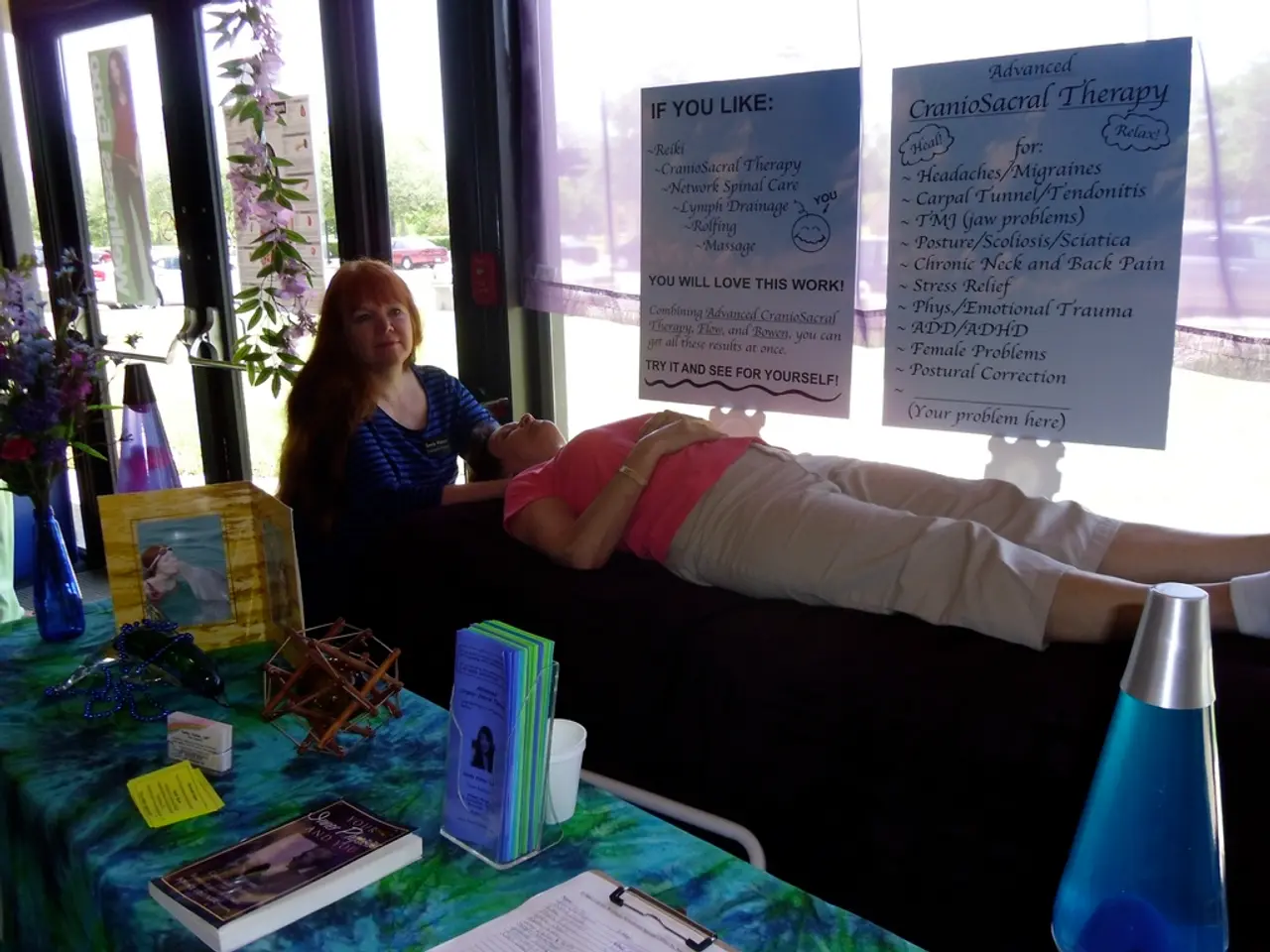Comprehensive Guide on VA Disability Ratings for Sleep Disorders Resulting from Anxiety: An Explanation
**VA Rating of Insomnia Secondary to Anxiety**
For veterans living with anxiety disorders, sleep disturbances can often exacerbate the condition, creating a vicious cycle. According to research, up to 70% of veterans diagnosed with anxiety disorders also report significant sleep disturbances. This article aims to explain the process of claiming VA disability benefits for insomnia secondary to anxiety.
**Insomnia and Anxiety: A Secondary Connection**
The Department of Veterans Affairs (VA) does not explicitly list insomnia as a standalone condition in its disability rating schedule. Instead, insomnia is evaluated under the general mental disorders rating schedule (38 CFR § 4.130). When insomnia is claimed secondary to a service-connected condition like anxiety, it becomes part of the broader assessment of mental health effects rather than being rated separately.
To receive VA disability benefits for insomnia secondary to anxiety, you must establish a "secondary service connection." This means that your insomnia must be directly caused or aggravated by your already service-connected anxiety, as established by medical evidence—typically through a diagnosis and a "nexus letter" from a medical provider linking the conditions.
**Rating Criteria and Percentages**
The VA uses the Schedule of Ratings for Mental Disorders (§4.130) to assign a disability rating ranging from 0% to 100% based on the severity and frequency of symptoms, and how they impact your daily functioning—specifically, your ability to work and engage in social activities. The rating criteria are as follows:
| Rating | Description of Symptoms and Functional Impact | |--------|-----------------------------------------------| | **0%** | Diagnosed, but symptoms do not interfere with work or social functioning. | | **10%** | Mild or transient symptoms, occasionally impacting functioning. | | ****30%** | Occasional decrease in productivity and daily task performance. | | **50%** | Reduced reliability and productivity; may include panic attacks, memory issues, or mood disturbances. | | **70%** | Deficiencies in most areas (work, school, family relations); may include suicidal ideation, continuous panic/depression, impulse control issues. | | **100%** | Total occupational and social impairment; may include delusions, hallucinations, self-harm risk, inability to perform daily tasks. |
**Claiming Process**
- **Medical Evidence:** You need a current diagnosis of insomnia and evidence that it is caused or worsened by your service-connected anxiety (e.g., medical records, a nexus letter). - **Functional Impact:** The VA evaluates how much insomnia impacts your daily life, work, and social functioning. - **Secondary Service Connection:** Your claim should clearly state that insomnia is a secondary condition to your service-connected anxiety.
**Combined Ratings**
If you receive a rating for insomnia secondary to anxiety, the VA uses the combined ratings table to calculate your overall disability percentage, which can potentially increase your total compensation.
**Key Takeaways**
- Insomnia secondary to anxiety is rated under mental health, not as a separate sleep disorder. - Functional impact on work and social life determines the rating percentage. - A strong nexus letter and medical evidence are crucial for establishing the secondary connection. - Compensation depends on the combined effect of all service-connected conditions.
Always consult with a veterans’ service officer or accredited claims agent to ensure your claim is properly prepared and documented. Veterans should work closely with their healthcare providers to develop a comprehensive treatment plan that addresses both their anxiety and sleep issues. Anxiety secondary to PTSD may be rated differently than standalone anxiety disorders. Seeking proper diagnosis and treatment for both anxiety and insomnia is essential not only for improving quality of life but also for strengthening disability claims.
Common challenges in filing these claims include proving the secondary connection and distinguishing insomnia symptoms from those of anxiety. The VA disability ratings for anxiety range from 0% to 100%, with each rating level associated with specific symptoms and impairments. Understanding how the VA combines ratings for multiple conditions is crucial for veterans with both anxiety and insomnia, as the VA uses a complex formula to calculate combined ratings, which is not a simple addition of individual percentages.
Veterans with major depression and anxiety may have unique considerations in their disability claims. Potential rating percentages for insomnia secondary to anxiety can range from 0% to 100%, depending on the severity of symptoms and their impact on the veteran's life. The VA uses a standardized rating system to evaluate the severity of mental health conditions, including anxiety disorders, based on the level of occupational and social impairment caused by the condition.
Veterans may be eligible for Total Disability based on Individual Unemployability (TDIU) if the combined effects of anxiety and insomnia prevent them from maintaining substantially gainful employment, providing compensation at the 100% rate even if their combined schedular rating is less than 100%. The addition of a secondary condition like insomnia can push a veteran's combined rating to a higher level, resulting in increased monthly compensation.
Filing a claim for insomnia secondary to anxiety requires careful preparation and documentation, including gathering medical evidence, obtaining a medical nexus opinion, completing VA Form 21-526EZ, submitting supporting documentation, and filing the claim with the VA. Chronic sleep deprivation due to anxiety-induced insomnia can lead to decreased cognitive function, memory problems, increased risk of accidents, weakened immune system, heightened irritability, mood swings, and exacerbation of existing mental health conditions. Bruxism secondary to anxiety may warrant separate VA ratings.
Insomnia secondary to anxiety is typically rated under the General Rating Formula for Mental Disorders, as it is often considered a symptom of mental health conditions rather than a standalone disorder. Effective treatment options for anxiety and insomnia may include Cognitive Behavioral Therapy for Insomnia (CBT-I), medication management, relaxation techniques, sleep hygiene improvements, and alternative therapies such as acupuncture for insomnia and anxiety. Veterans with multiple mental health conditions, such as OCD or bipolar disorder with insomnia, should be particularly attentive to how these conditions interact and are rated by the VA.
The VA uses a combined ratings table to determine the overall disability percentage for a veteran with multiple conditions, such as a 50% rating for anxiety and an additional 30% rating for insomnia secondary to anxiety.
- By seeking a diagnosis and appropriate treatment, veterans with bipolar disorder, which is a mental-health condition, can address any sleep disturbances that may be related to their disorder, as sleep issues are commonly associated with various mental health conditions.
- In the process of filing a claim for insomnia secondary to anxiety, veterans are advised to undergo therapy or counseling to help manage their anxiety, which is a key factor in the development of insomnia, and to improve their overall mental health.
- Despite the potential challenges in proving the secondary connection between anxiety and insomnia, veterans with anxiety disorders should strive to maintain good mental health and practice healthy sleep hygiene, as these efforts can contribute positively to their mental-health-and-wellness and potentially strengthen their disability claims.
- For veterans with anxiety disorders and insomnia, it is essential to address both conditions simultaneously through a combination of science-backed treatments such as Cognitive Behavioral Therapy for Insomnia (CBT-I), medication management, and lifestyle modifications, ensuring that they are living a healthy and balanced life.
- In collaboration with healthcare professionals, veterans should work towards establishing consistent sleep patterns and stress-management strategies to minimize the impact of anxiety on sleep, improve their mental health, and optimize their chances of receiving VA disability benefits for insomnia secondary to anxiety.




